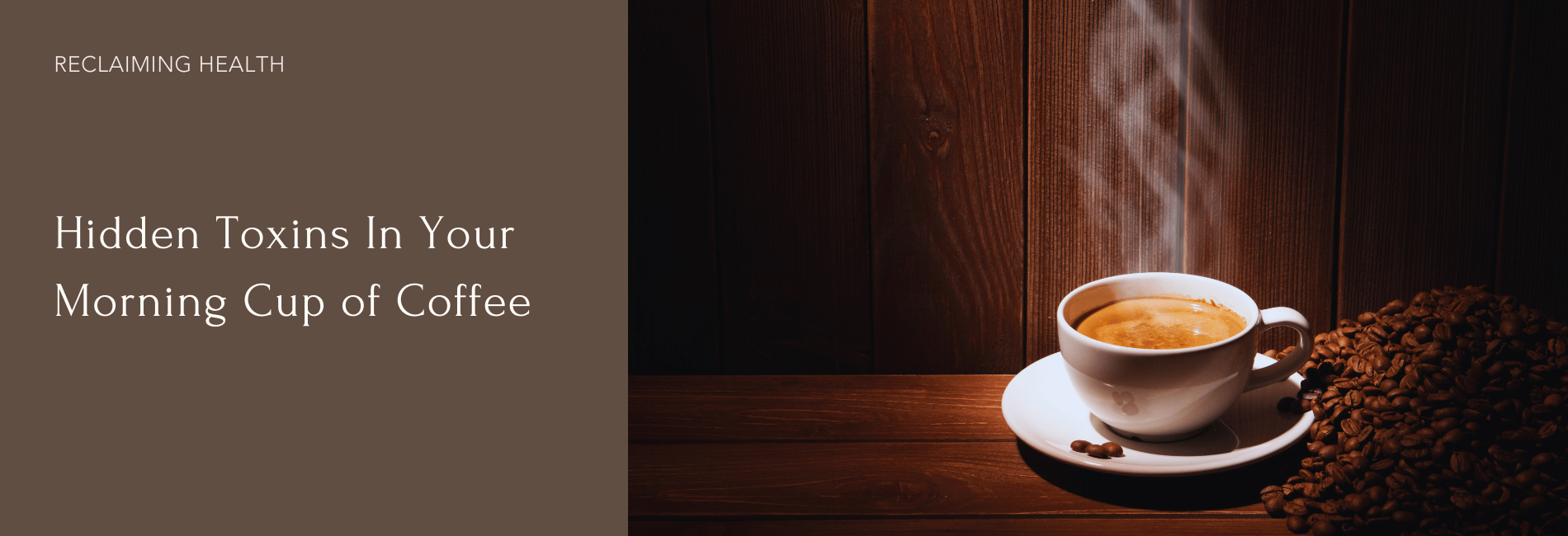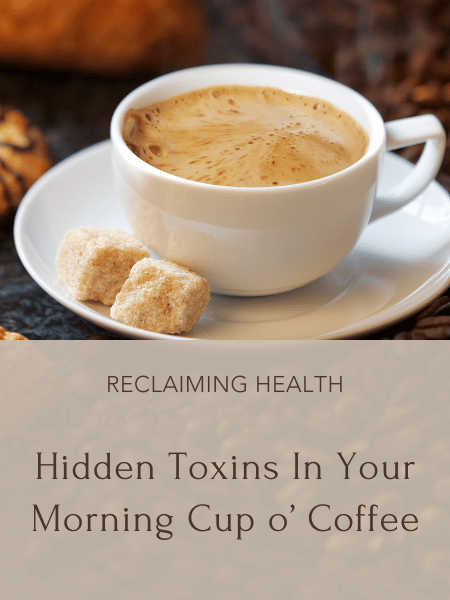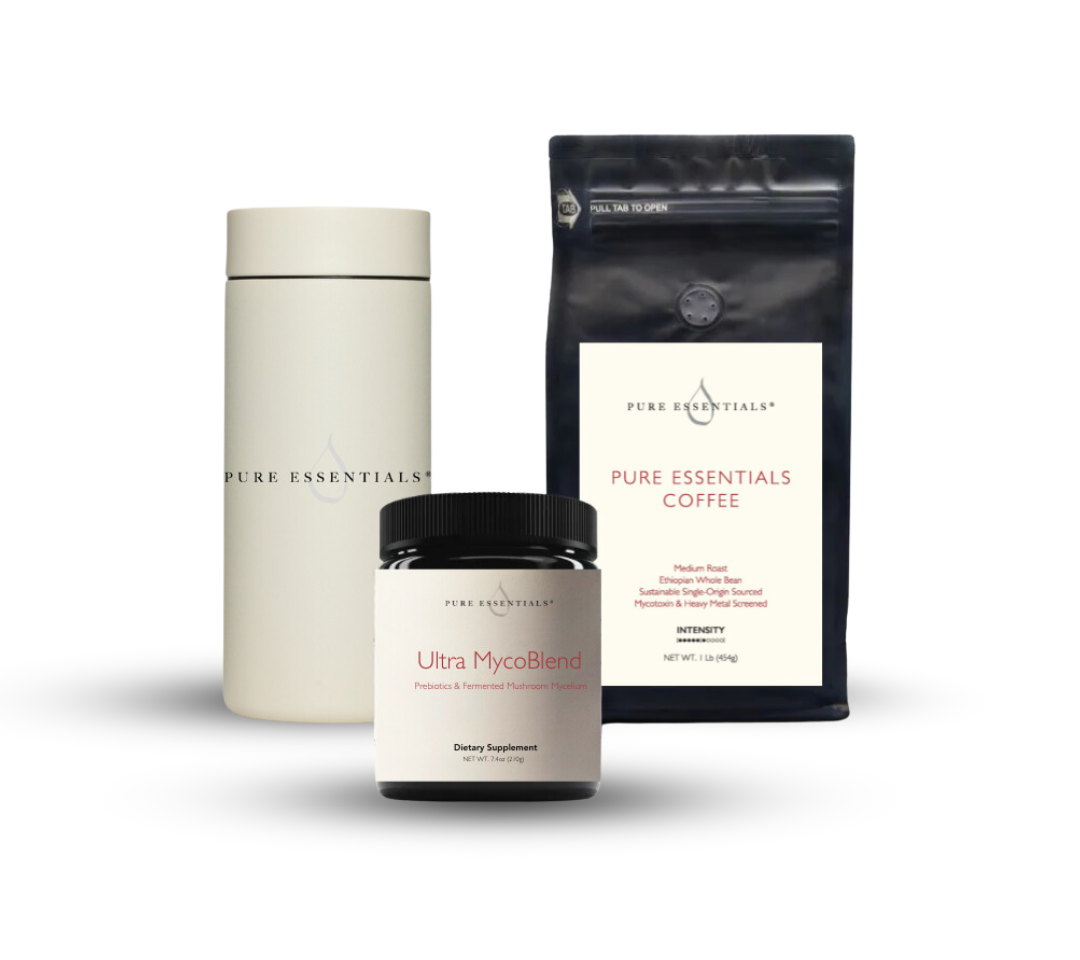summary:
We're examining the hidden risks of mycotoxins and contaminants in coffee, particularly ochratoxin A (OTA) and acrylamide, which can arise from mold growth, improper storage, and lax handling, especially in warm, humid regions. These toxins affect liver, kidney, immune, and digestive health. Pure Essentials Coffee, rigorously tested and verified OTA-free by Eurofins Labs, reflects the company’s commitment to purity. The post also connects the medicinal use of coffee in Ethiopian and Yemeni cultures with Pure Essentials’ mission to provide safe, high-quality products.
For so many of us, coffee is more than a drink; it’s a cherished ritual, a comforting morning routine, and a spark of energy. But as much as we rely on coffee to fuel our day, there’s a side to coffee many don’t see—the potential for hidden toxins.
At Pure Essentials, we’re dedicated to truth and transparency, which is why our upcoming Pure Essentials Coffee has been rigorously tested to be free from one of the most common coffee contaminants, ochratoxin A (OTA), verified by the highly respected Eurofins Labs.
Let’s look at common toxins that may lurk in coffee, why they occur, and the health consequences of these hidden threats.
Pure Essentials Coffee, Ultra MycoBlend + Tumbler
$90
- Our whole bean coffee is sustainably sourced from small family farms in the Guji region of Ethiopia. Organic growth and processing preserves rich levels of natural antioxidants.
- Combining six bioactive, organically grown mushroom species: Organic Cordyceps, Organic Reishi, Organic Himematsutake, Organic Shiitake, Organic Maitake, and Organic Turkey Tail. Prebiotic benefits derived from the polyphenols of organic green tea extract and organic fermented ginger.
- 12 oz. tumbler: durable 18/8 stainless steel, BPA-free, 360-degree leakproof lid, with a beautiful powder coat finish, and double wall design to keep hot drinks hot and cold drinks cold.
Toxins Found in Coffee Beans
Coffee is one of the most widely consumed beverages globally, but unfortunately, not all coffee is as pure as it could be.
The journey from bean to cup involves several stages—harvesting, drying, storage, and shipping—and at each stage, there’s an opportunity for mold to grow and mycotoxins to form.
Ochratoxin A
(OTA): OTA is one of the most common and concerning mycotoxins found in coffee.
This toxin, produced by certain molds, often forms when coffee beans are improperly stored, particularly in warm, humid environments where mold can thrive. OTA is known to accumulate in crops like coffee beans, cereals, and dried fruits, and it has been linked to liver and kidney damage, as well as potential neurotoxic effects
Acrylamide:
Another toxin that can develop in coffee is acrylamide, a chemical created when coffee beans are roasted. Classified as a potential carcinogen, acrylamide forms at high temperatures in various foods, including coffee. Although more research is needed to understand the full impact of acrylamide on human health, many experts suggest limiting exposure to this toxin where possible.
Other Molds and Mycotoxins: Besides OTA, coffee can also harbor other molds and mycotoxins, especially if the beans are not handled with care. Mycotoxins are toxic compounds produced by molds that can form during the drying or storage process, and certain mycotoxins are known to impair immune function and lead to gut and liver issues.
Why Do These Toxins Occur?
Mold and toxin contamination is usually a result of improper handling. Coffee beans require specific drying conditions to prevent moisture buildup, which invites mold growth. In regions with high humidity or less controlled storage conditions, the risk of mold development increases significantly. For instance, coffee farms in tropical climates may face more challenges in keeping beans mold-free without stringent quality controls.
Along with climate factors, supply chain challenges can contribute to contamination. Long storage times, inconsistent transportation conditions, and lack of regulated storage practices can all play a role in allowing mold to flourish and produce toxins.
Testing & Quality Standards: What Sets Pure Essentials Apart
To protect consumers, the coffee industry has established certain testing requirements. However, not all brands follow the same strict standards, and many rely on surface-level inspections. At Pure Essentials, we understand the need for thorough and reliable testing to ensure the safest possible coffee.
Our partnership with Eurofins Labs reflects this commitment, as Eurofins is renowned for its rigorous, third-party verification processes.
Testing for toxins like OTA involves advanced laboratory methods, including liquid chromatography and mass spectrometry. These tests help detect even trace amounts of mycotoxins, providing a reliable measure of a coffee’s purity. Eurofins Labs utilizes these advanced techniques to verify that Pure Essentials Coffee meets the highest standards, giving you confidence in every sip.
In many regions, regulations around mycotoxins in coffee are limited. While the European Union enforces strict OTA limits in coffee, the United States has no specific regulations for OTA levels.
While the FDA monitors mycotoxins, including OTA, in the food supply, it has not set maximum allowable levels for OTA. This discrepancy makes it even more critical for consumers to choose brands that go above and beyond to ensure safety.
How Do These Toxins Impact Health?
For people sensitive to mold or who already experience certain health conditions, the effects of these toxins can be significant. Mycotoxins, like those found in contaminated coffee, can lead to symptoms ranging from mild fatigue and brain fog to more serious concerns such as liver damage, kidney issues, and even immune suppression.
- Liver and Kidney Health: Ochratoxin A is known for its nephrotoxic effects, meaning it can harm the kidneys, and studies suggest it may also contribute to liver dysfunction
Over time, regular exposure to even small amounts of OTA may increase the risk of chronic kidney disease and other health issues.
- Digestive and Immune Function: Mycotoxins can disrupt gut health and impair immune function. For people who struggle with digestive sensitivities or autoimmune conditions, mold in coffee may exacerbate symptoms, leading to further discomfort and health challenges.
The Pure Essentials Difference: Coffee You Can Trust
Historically, coffee was valued for both its stimulating effects and for its medicinal properties.
Ancient cultures in Ethiopia and Yemen first used coffee as an energizing remedy, believed to boost physical stamina, mental clarity, and even digestive health.
Traditional healers would brew coffee to help alleviate symptoms of fatigue, digestive complaints, and headaches, appreciating it as a natural tonic for enhancing well-being.
Over time, coffee became known for its high levels of antioxidants and anti-inflammatory compounds, which are now scientifically linked to reduced risks of certain chronic diseases, including liver and heart conditions.
Our mission at Pure Essentials is to deliver products that are not only effective but also incredibly pure. We’re excited to introduce Pure Essentials Coffee, which has been rigorously tested to be free of OTA and other harmful toxins. This commitment to purity isn’t just about compliance — it’s about empowering you to make choices that support your health.
We aim to create a coffee that you can truly feel good about. So, the next time you pour a cup, you’ll know it’s free from hidden contaminants that could impact your well-being. From our carefully sourced beans to our meticulous testing process, Pure Essentials Coffee represents a new standard in coffee quality — one that values health as much as flavor. Here’s to a cleaner, safer cup — and a healthier you.
Citations
OTA Neurotoxicity: MDPI - Toxins Journal
Eurofins Labs Quality Testing Standards - https://www.eurofins.com/
FDA Overview ofMycotoxins: FDA - Mycotoxins
Liver and Kidney Health Effects of OTA: WHO - Mycotoxins Fact Sheet
Historical Medicinal Uses of Coffee: Oxford Research Encyclopedia - Food Studies
Health Benefits of Coffee’s Antioxidants: PMC - National Center for Biotechnology Information






